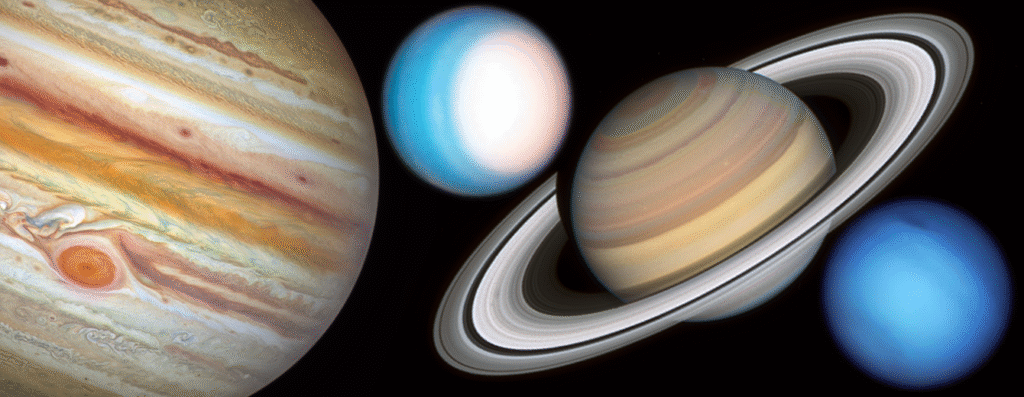The sky has always been full of mysteries for mankind. Stars, planets, moon, sun and galaxies—all these make us realize the infinity of the universe. If you are new to astronomy and want to learn it in 2025, then this blog is for you. In this, we will give a guide to astronomy for beginners in simple language. Here you will find easy ways to identify stars, correct use of telescope and understand the mysteries of the sky.
1. What is Astronomy?

Astronomy is the science that studies galaxies, planets, moons, stars and other celestial bodies of the universe. It is not only a subject of knowledge, but it helps us understand the mysteries of our existence and the universe.
Personal experience:
The first time I looked at the moon through a telescope, I was amazed at the sight of its craters and hills. This experience cannot be got from a book or video—it can only be understood by seeing it yourself.
2. Essential tools for a beginner astronomer

- Telescope:
- A telescope with 50mm to 70mm aperture is good for beginners.
- With this you can easily see the moon, planets and some stars.
- Binoculars:
- If you don’t have a telescope, binoculars are a good start.
- With 7×50 or 10×50 binoculars, you can see many mysteries of the night sky.
- Star Chart or Apps:
- With apps like SkySafari, Stellarium, you can easily identify stars and constellations.
Personal experience:
I saw four large mouth-shaped moons of Jupiter with my first binoculars. The experience was absolutely magical and made me more interested in astronomy.
3. Nakshatras and their identification

Constellations are groups of stars in the sky that appear in the form of a shape. Some of the major constellations are:
- Orion: A hunting-shaped constellation that is easily recognizable.
- Sirius and the Conductor (Canis Major): The brightest stars located near Orion.
- Scorpius & Ophiuchus: Beautiful constellations visible in the summer.
Personal experience:
One night I was lying in the park with my friends watching the sky. We all made a map of Orion’s Belt. It was fun and easy to learn.
4. Observation of planets

Seeing planets outside the Earth is an exciting experience. Some easy ways:
- Sun and Mercury: Can be seen early in the morning or in the evening when the sun is setting.
- Venus: The brightest planet, which can be seen with the naked eye.
- Mars and Jupiter: Identified by their brightness and color at night.
Personal experience:
I was very excited to see the red color of Mars in my telescope. I will always remember this experience.
5. Astronomical Events

There will be many special astronomical events in 2025. Some examples:
- Lunar Eclipse and Solar Eclipse: Watching a total or partial eclipse is an amazing experience.
- Seasonal Meteor Showers: Many shining stars will be visible in the sky on special nights in August and December.
- Planetary Alignment: Sometimes several planets appear in a straight line.
Personal experience:
I once saw the Perseid meteor shower. Seeing the stars falling in the sky felt like the universe was talking to us.
6. Easy Ways to Learn Astronomy

- Online Courses and Videos:
- Free and easy courses are available on Coursera, Khan Academy, YouTube.
- Star Parties and Clubs:
- Get real experience by joining Astronomy Clubs in your city.
- Making a diary:
- Note down what you saw each night. This will help you understand more and track your progress.
Personal experience:
I started my first astronomy diary. Every night I would note down the stars and planets and slowly began to recognize them.
7. Benefits of astronomy

- Enlightenment: To know the structure and mysteries of the universe.
- Patience and concentration: Identifying stars and setting up the telescope takes focus.
- Cultural and historical understanding: The names of the constellations and their stories help in understanding human culture.
Personal experience:
Astronomy connected me to nature and the universe. This experience also gives mental peace.
conclusion
Astronomy is not just a science, it is a journey—towards the infinite universe. Learning it has become even easier in 2025, as apps, online platforms, and clubs allow even beginners to step into this field easily. If you want to understand the night sky and get lost in the world of stars, pick up a telescope today and start your astronomical journey.
This blog is for educational and informative purposes only. Please use any astronomical equipment carefully and with proper protection.
#AstronomyForBeginners #SkySecrets2025 #StarGazing #TelescopeLife #ConstellationLove #UniverseMagic #NightSkyVibes #Carrerbook #anslation


Leave a Reply